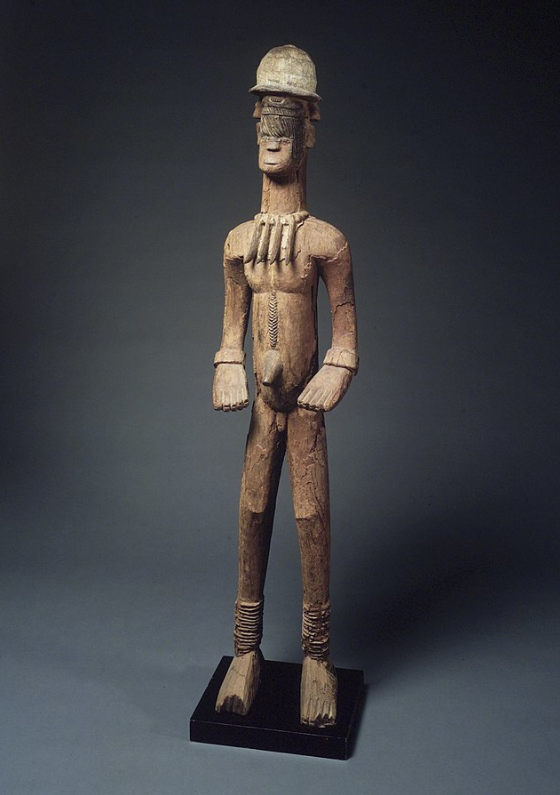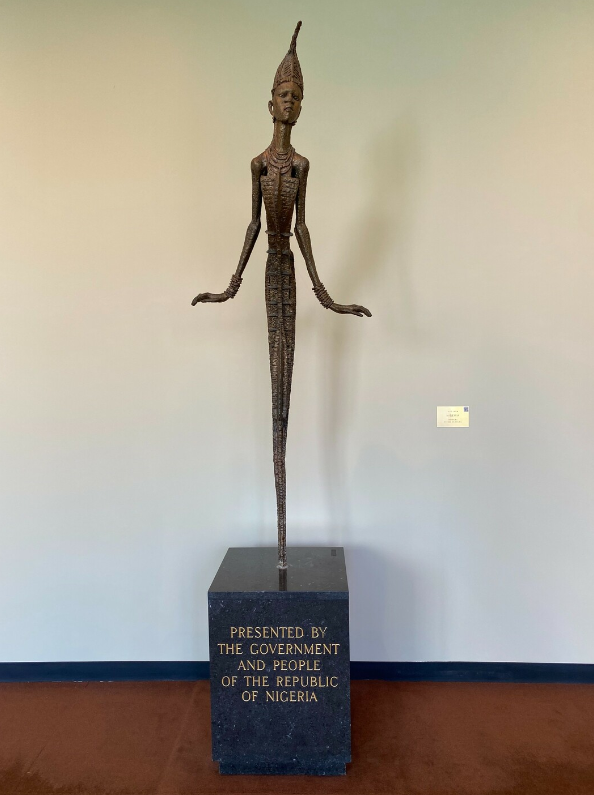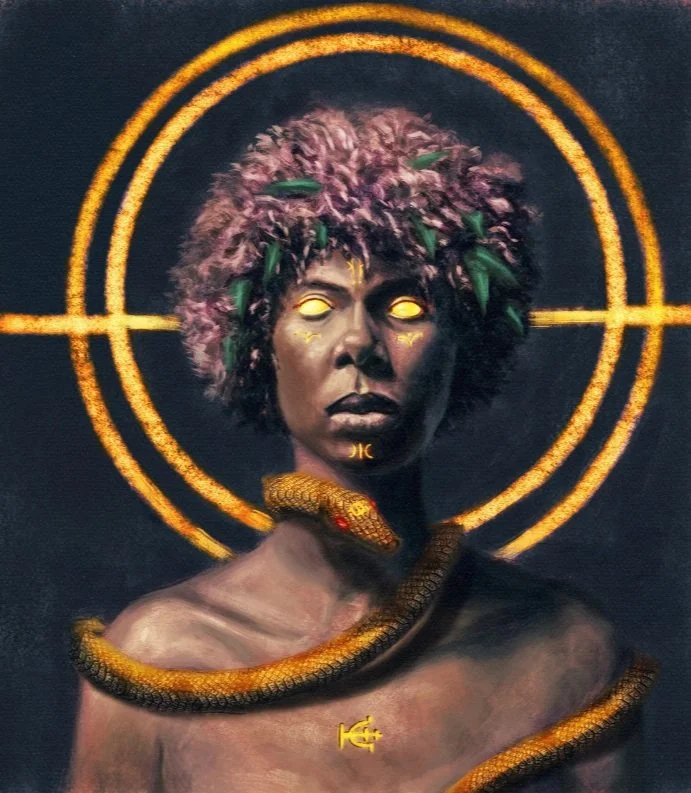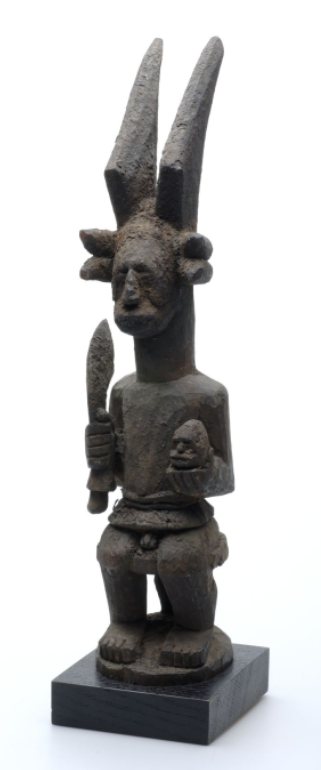Igbo mythology: A beginner’s guide
Igboland map - Igboland map, CC BY-SA 4.0, https://commons.wikimedia.org/w/index.php?curid=135534180
If you ask Encyclopedia Britannica to define mythology, you’ll find the following summary: “People of all countries, eras, and stages of civilization have developed myths that explain the existence and workings of natural phenomena, recount the deeds of gods or heroes, or seek to justify social or political institutions”.
We all know – or have at least heard the big stories from – ancient Greek mythology. These myths, featuring one of the most well-known pantheons, include gods like Gaia: Mother Earth, Uranus: father of the sky, Poseidon: god of the sea, Zeus: the king of gods, Hera: the queen of gods, Athena, Achilles, Apollo, etc.
These myths – and those of the Romans, Celts, Nords, etc – have had the luxury of preservation in the Western world by their constant depiction in fantasy movies, plays, games, songs, and books. Everyone knows these characters, not just historians or researchers. Many mythologies from African tribes and faiths, on the other hand, don't enjoy this privilege in the West, despite being no less fascinating. It’s time to bring one into the spotlight.
The Igbo community is a tribe in South Eastern Nigeria that can be traced back to 3000 BCE, and remains one of the largest single ethnic groups in Africa to this day. Igbo representation in Nigerian media is often portrayed poorly, and due to the massive impact of religious colonialism, most Igbos have neglected to conserve stories unique to our heritage. In fact, many argue that Christianity has taken significant inspiration from the original Igbo mythology, in which the Christian god is referred to as “Chineke” and the biblical satan “Ekwensu”.
Here is everything you need to know about the Igbo gods:
1. Chineke/Chukwu
Chineke is the universal god, the Almighty, the god who created everything – Chi kere uwa nile. According to Igbos, Chineke is all-powerful and all-knowing, represented by the sun, and responsible for every other deity and living thing. Referred to by many names, including Chukwu and Obasi, the origin of Chineke remains a mystery, and they are believed not to have a beginning or end. There are six aspects of Chukwu: Chi, Anyanwu, Amadioha, Ala, Okike, and Chukwu.
Brooklyn Museum, CC BY 3.0, https://commons.wikimedia.org/w/index.php?curid=22510538
2. Chi
Every Igbo is said to have a Chi that resides within them, a representation of Chineke, assigned to them at birth. The Igbos believe that the presence of Chi in every man makes him a part of the divine. Your Chi tells you right from wrong. When a person's Chi is weak or wrong there are rituals that can be performed to realign, and households usually contain a Chi shrine, sometimes centered around a tree.
3. Anyanwu
Anyanwu is the goddess of the sun. A direct translation of her name into English means “eye of the sun”. She is said to look like a human, and was created by Chineke to serve a unique purpose, to serve as the goddess of productivity, sound health and the well-being of her people on Earth. She keeps the balance of the Universe. Her importance is portrayed in the way many Igbos get their surname from her.
Anyanwu by Ben Enwonwu (1954) https://dam.media.un.org/CS.aspx?VP3=DamView&VBID=2AM94SXE7NIS&SMLS=1&RW=1366&RH=657#/DamView&VBID=2AM94SXE73UZ&PN=1&WS=SearchResults
4. Amadioha
Amadioha is often depicted as a white ram with red skin. The god of thunder and lighting, as well as justice, love, peace, unity, and carvers, Amadioha represents the collective will of the people. His name, in a literal translation, means “man of the people”. Amadioha is believed to be a gentle god who only gets violent when provoked. He is also known as the strongest of all the gods.
5. Ala
Ala is known as the goddess of the Earth. She ensures the enforcement of all rules set by Chukwu. It is believed that all humans will one day return to her. Ala is regarded as the wife of Amadioha and the one who gives women children - the mother of all. It is believed that Ala can swallow people up into the earth when she is offended, while the souls of the dead reside in her sacred womb.
Ala by Anthony Azekwoh https://www.anthonyazekwoh.com/paintings/ala
6. Ekwensu
Ekwensu is the father of all sorcery, a trickster with a cunning personality. He is the testing force of Chukwu, and although initially distinct, in some areas has come to be synonymous with the Christian devil. Ekwensu is also known as the god of war and is feared for his gruesome vengeance. In times of war, Igbos put up a shrine to help sway over negotiations to tip their scales of victory. He is the arbiter of change and chaos, associated with natural evil, rather than moral.
7. Ikenga
Ikenga is the god of strength. In the Igbo community, Ikenga only belongs to men and women of great reputation. Our forefathers called on Ikenga in times of difficulty. The symbol of one’s Ikenga is kept in his home. It comprises one's personal Chi, and Ndichie (his ancestors). Ikenga is a two-faced god of time, one face looking at the past and the other looking at the present.
Collectie Wereldmuseum (v/h Tropenmuseum), part of the National Museum of World Cultures, CC BY-SA 3.0, https://commons.wikimedia.org/w/index.php?curid=20355142
8. Idemili
Idemili is the goddess of the sea and oceans. She is also known as Eke Mili, or "python of the sea". When a baby is born, the Python pays a visit and crawls around the child, there to welcome them, rather than to do harm. The killing of the ball python is a taboo in areas where this belief is still upheld.
19. Njoku Ji
Njoku is the goddess of yam, also known as Ifejioku. The farming of yam is central to Igbo culture. When Igbos arrived on the Earth they had nothing to eat, so the legend goes that Njoku provided them with yam. The Ahanjoku Festival is celebrated among the Igbo people on a full moon before the New Yam Festival. Children given the name Njoku were dedicated to the goddess, and expected to become successful yam farmers, effectively raising them to the ranks of nobility.
It is also worth remembering that the Igbo people disposed of gods when they no longer served any purpose to them. They lived in a Republican society even before the advent of any formal republic.
If you are interested in learning more about Igbo mythology, check out these fiction books: Arrow of God by Chinua Achebe and Orchestras of Minorities by Chigozie Obioma
About the Author
Onyemauche Jessica is a Nigerian fiction writer and freelance writer. Her writing is centered around womanhood, romance, and social issues. She is a 5th-year law student studying at Imo State. Jessica’s feminist and pan-Africanist stance is echoed in her work.






